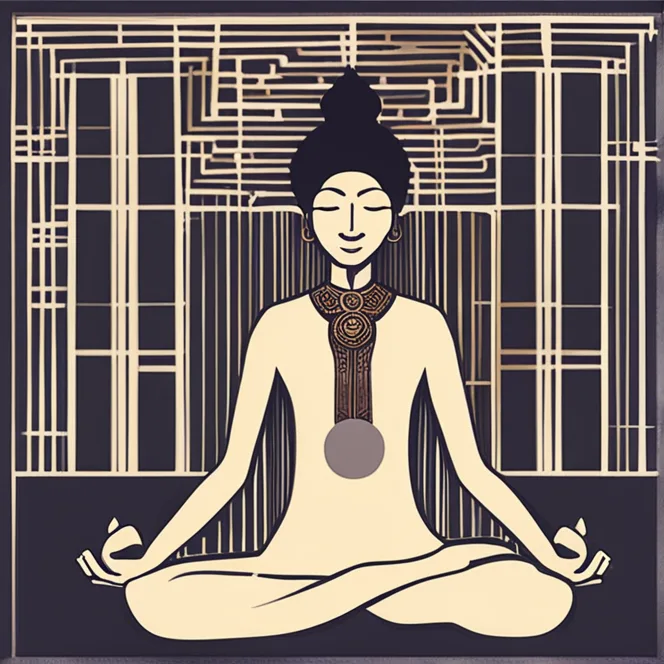
Exploring The Origins Of Meditation
Trace the ancient roots and modern resurgence of mindfulness meditation, a practice enhancing self-awareness and tranquility.
article by Hina Kurosawa
The Historical Backbone
Mindfulness meditation has a rich tapestry of history that intertwines with various traditions and cultures. Its origins can be traced back thousands of years, with the most significant influences coming from the Eastern practices of Buddhism and Hinduism. In Buddhism, mindfulness meditation, known as 'Sati' in Pali, is a key aspect of the Noble Eightfold Path, a guide to enlightenment and the alleviation of suffering. The Buddha taught the method of Vipassana, or "insight meditation", which aims to cultivate deep understanding and awareness of the nature of reality. Over centuries, these practices have evolved and spread, influencing countless generations in their quests for inner peace and enlightenment.
Transcendence Across Cultures
Mindfulness meditation is not exclusive to any one culture or religion. While its basis lies in Buddhist meditation, elements of mindfulness are present in various spiritual and philosophical traditions worldwide. For instance, Christian contemplative practices such as centering prayer share similarities with mindfulness in quieting the mind and focusing on the present moment. Similarly, Sufism, the mystical Islamic tradition, embraces meditation techniques akin to mindfulness to help believers form a deeper connection with the divine. This universality has facilitated the cross-cultural evolution of the practice, allowing it to become adaptable and relevant across different societies and eras.

The Modern Renaissance
In the latter half of the 20th century, mindfulness meditation experienced a renaissance, especially in the West. This resurgence was largely attributed to influential figures like Jon Kabat-Zinn, who founded the Mindfulness-Based Stress Reduction (MBSR) program in 1979. Integrating mindfulness with scientific understanding and psychological therapy, MBSR has proven effective in alleviating various mental and physical health issues. The secularization of mindfulness through such programs has made the practice more accessible and divorced from any religious connotations, which has contributed significantly to its widespread adoption in modern times.

Mindfulness in Astrology and Beyond
Astrological tenets have always extended beyond mere fortune-telling into the realms of personal growth and self-awareness—principles intrinsic to mindfulness meditation. As we enter the year 2024, astrologers view the powerful transits of the planets as an invitation to embrace mindfulness. For example, the transit of Jupiter in Aries could be seen as a time for assertive growth, a period ripe for meditative practices that promote courage, initiative, and self-discovery. Similarly, Saturn's journey through Pisces may call for introspection and contemplation, encouraging a deeper dive into the meditative mindfulness journey within the silence of the mind.

Embracing Mindfulness Today
Today, mindfulness meditation has transcended its traditional roots to become a modern tool for managing stress, improving focus, and cultivating a more fulfilling life. Its flexibility and adaptability mean that anyone, regardless of their cultural background or beliefs, can practice mindfulness. With the continued integration of holistic well-being into daily life, mindfulness is expected to maintain its relevance and appeal, adapting to the needs of individuals seeking tranquility in an increasingly complex world.
Published: 12/14/2023
Modified: 12/14/2023
More predictions
Come back here soon to learn more about yourself and your future


Calming Waves: Meditation For Stress Relief
Meditation techniques to help foster inner peace, alleviate stress, and enhance wellbeing in today's fast-paced world.


Meditation For Better Sleep
Discover how mindfulness meditation can enhance your sleep quality, providing relief from insomnia and promoting overall well-being.


Breathwork For Mindful Meditation
Discover effective breathwork techniques for enhancing your meditation and achieving a deeper sense of calm.